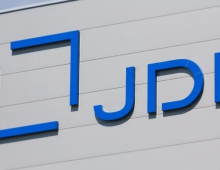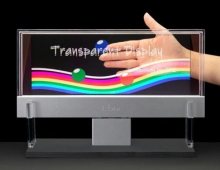
Japan Display To Raise Funds Through New Share Issuance and Asset Sale
Japan Display (JDI) has decided to sell its Nomi Plant, and related assets to Innovation Network Corporation of Japan (INCJ), JDI's largest shareholder, and plans to obtain financing in the amount of approximately 20 billion yen from INCJ in the first quarter of fiscal 2018.
In addition, JDI decided on Friday to raise capital in the first quarter of FY 2018.
The funds will be used principally as working capital to respond to higher demand expected in the second half of FY 2018 for JDI's LCD module FULL ACTIVE and for capital expenditures for FULL ACTIVE back-end manufacturing (module assembly). FULL ACTIVE was developed to make all four bezels of a display narrow by leveraging JDI's LTPS technology and in collaboration with several Japanese LCD component suppliers.
Chinese smartphone makers have adopted the FULL ACTIVE displays as they are said to offer a performance close to OLED displays, while they remain cheaper.
JDI is also planning to create alliances with global companies to bolster its OLED display mass manufacturing technology and accelerate commercialization.
In addition to continuing to develop high-resolution OLED displays using its own evaporation-method, JDI is also currently holding ongoing consultations with possible OLED-related alliance candidates.
JDI also decided not to make JOLED its subsidiary. Initially, JDI planned to acquire the 51% of JOLED's stock.
JOLED is developing technology to commercialize the printing organic light emitting diode (OLED) display. In order to proceed with capital investment to establish a mass production line, the company has been engaging in negotiations with investor candidates to seek financing of around 100 billion yen.
JDI has provided financial support to JOLED and has established a framework of support and cooperation in the areas of development and production. JDI currently outsources certain development activities to JOLED. In addition, JDI and JOLED have entered into a distributorship agreement in order to globally execute JOLED's marketing and sales activities for OLED displays by utilizing JDI's sales channels and resources.
JDI decided to continue its strong cooperative relationship with JOLED and not proceed to the planned acquisition of JOLED's stock.
The Japan Display is facing challenges after reporting a fourth straight year of net losses amid competition from cut-price Chinese players and slowing growth in smartphone demand.
The firm's woes also stem from its delayed adoption of organic light-emitting diode screens that has cost the display maker orders from its key customer Apple. The U.S. tech giant opted for OLED screens in its latest high-end iPhone X and bought them from Samsung Electronics.
The latest fundraising is in addition to a line of credit worth 107 billion yen that Japan Display received from its main lenders last year and 75 billion yen it got in 2016 from INCJ.
Japan Display was formed in 2012 by combining the LCD businesses of Hitachi, Toshiba and Sony in a government-brokered deal.





















